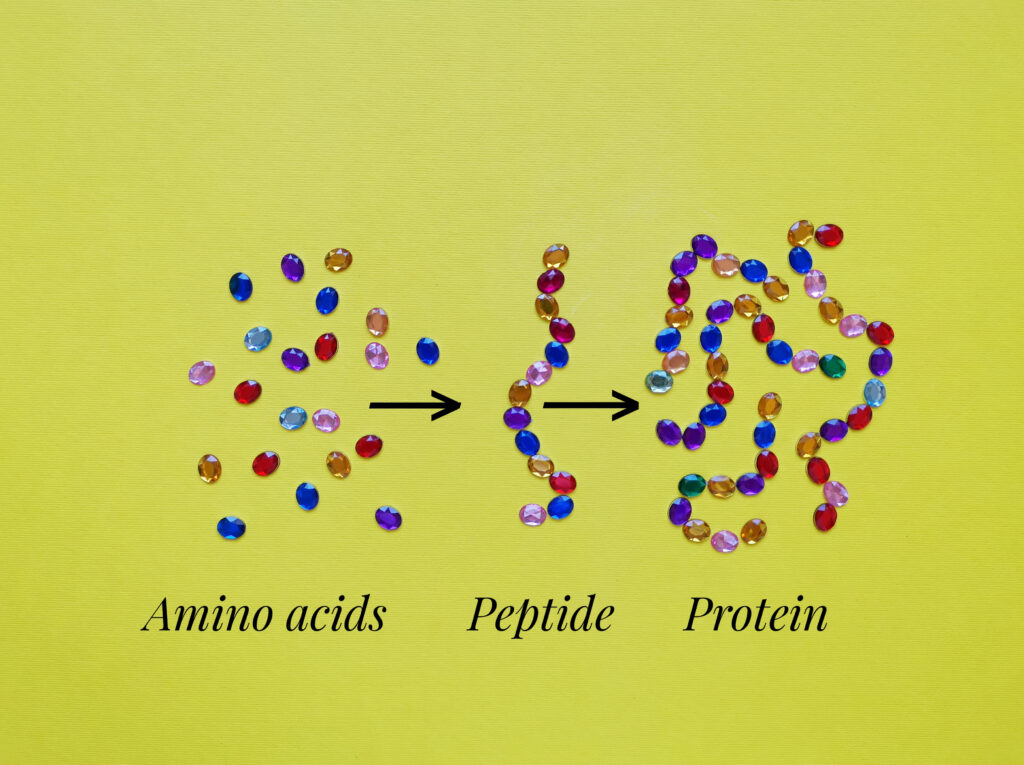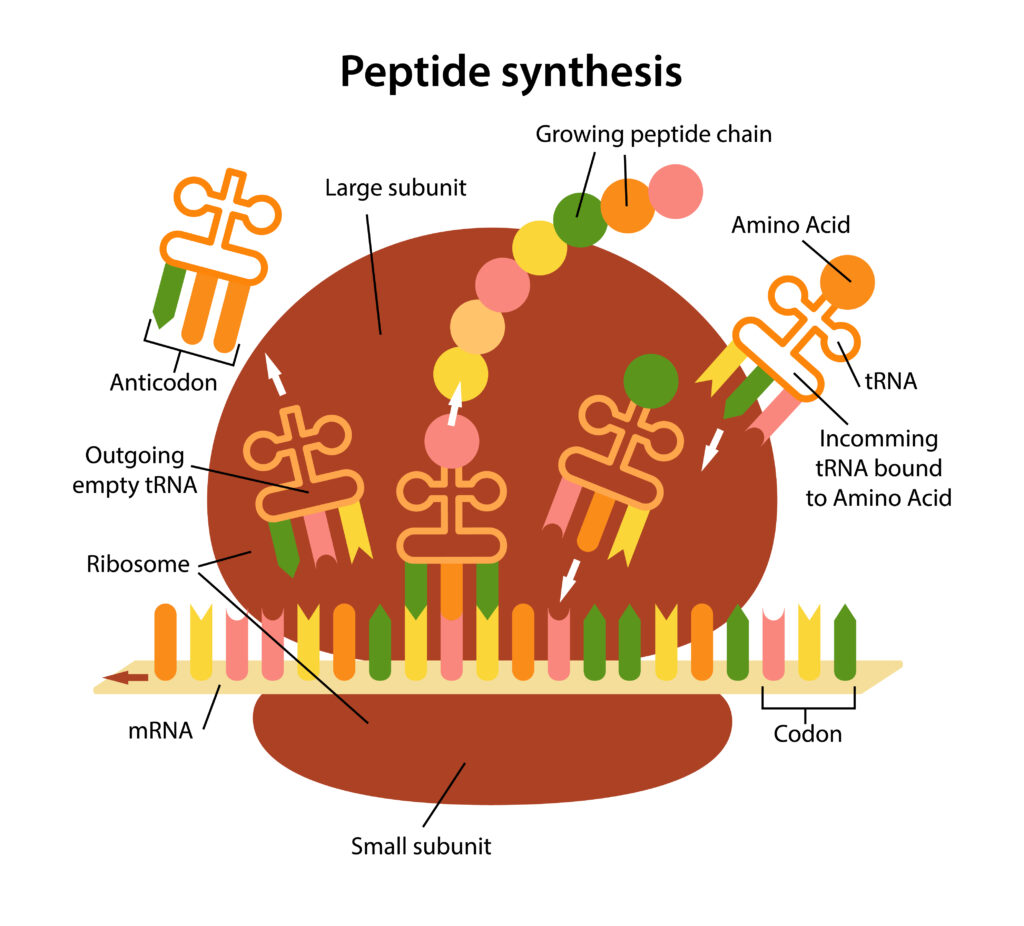Peptide Therapy

What is Peptide Therapy?
Peptide therapy has been gaining traction in recent years for a variety of health benefits. But what is peptide therapy? Is it the right solution for your health and wellness concerns? As the building blocks of proteins, peptides play an essential part in many biological functions – including aging. Combat age-related decline, support muscle growth and performance, boost your skin health, and more.
Peptides play a major role in how our bodies function. Recent advances in the study of peptide therapy have uncovered a myriad of conditions that peptides can treat. At The Darling Center, we prescribe bioactive peptides that provide many benefits, including (but not limited to): faster healing, improved immune function, better sleep, stomach ulcer healing and more. Peptides are also used and applied in the treatment of injuries, with capabilities that help prevent aging, illness, and enhance peak performance. Additionally, they are used to facilitate the effectiveness of bio-identical hormone therapy by sensitizing hormonal receptors.
Proteins are long chains of amino acids linked together. Peptides are much smaller chains of amino acids, meaning they share many similar properties, but are not the same thing. Because peptides are smaller and less dense than proteins, it appears they are more easily absorbed by the body. This enables them to penetrate intestines and skin more easily, allowing faster entry to the bloodstream.
Peptides are naturally present in foods such as:
- Meat
- Fish and shellfish
- Milk
- Eggs
- Flaxseed and hemp seed
- Wheat
- Beans and lentils
- Soy
- Oats
Peptides are also available in a variety of products, including oral supplements, skincare products, or as injectable therapies. Lab-made peptides are used in medications for conditions like diabetes or multiple sclerosis due to their ability to mimic natural peptides. Different types of peptides play different roles in the body.
Emerging Science
Peptides are on the cutting edge of anti-aging and regenerative medicine, as their benefits are myriad and long-lasting. According to the American Academy of Anti-Aging Medicine, Peptide therapy is part of a newly emerging science of cell signaling amino acid sequences (1). It can be specifically targeted to potentially recompose bodily chemistry, generating homeostasis (balance) in the body.
Peptide Therapy Benefits
Below are just some of the things peptides have been shown to improve in the body:
- Tissue healing
- Biological functioning of the brain, skin, eyes, urinary, and reproductive systems
- libido and sexual arousal
- Hormone production
- Immune function
- the sleep cycle
- the production of inflammatory mediators
- DNA replication
- Cell division
Are Peptides Safe: Efficacy and Safety of Peptide Therapy
Peptide therapy has shown promise in addressing many health concerns thanks to its ability to target specific biological pathways and functions. The effectiveness of peptide therapy varies depending on the particular peptides used and the individual’s health goals.
For example, it can be highly effective in promoting muscle growth or supporting weight management, but the results may differ for anti-aging or cognitive enhancement goals. Scientific research and clinical studies continue to explore the full potential of peptide therapies in various medical fields.
Safety and potential side effects are crucial considerations when using peptide therapy. While peptides are generally well-tolerated, they may have side effects, mainly if administered inappropriately or in excessive amounts.
Side effects can include allergic reactions, pain at the injection site, or hormonal imbalances. It is essential to consult with healthcare professionals who can ensure that the treatment is safe, appropriate, and tailored to an individual’s needs.
Peptide therapy typically requires a prescription in many countries, which ensures that it is administered under the supervision of a qualified healthcare provider. This prescription requirement helps maintain safety and efficacy standards and prevents misuse.
The oversight ensures that the peptides used are of pharmaceutical grade and meet quality and safety standards. Obtaining peptides from regulated and reputable sources is crucial to mitigate the risks associated with unregulated or counterfeit products.
Obtaining peptides from unregulated sources can be dangerous, as the quality and purity of the peptides may be compromised, increasing the potential for adverse effects or suboptimal results.
Peptides We Offer
We offer many peptides to treat various ailments. Recently the FDA reclassified some peptide as a schedule 2 drug which means that compounding pharmacies may no longer offer them. It does not mean they are illegal but simply cannot be made by a compounding pharmacy. Below is a partial list of the peptides we use at the Darling Center. This list includes the peptides which the FDA has not classified as Schedule 2. Click on the peptide name to learn more about it.
- BPC 157 (in pill form)
- Cerebrolysin
- IGF-1 -LR3
- ll-37
- NAD+
- PE 22-28
- PT-141
- Semaglutide (brand name Wegovy/Ozempic)
- Sermorelin
- Tesamorelin
- Thymosin Beta 4
- Tirzepatide (brand name Mounjaro)

